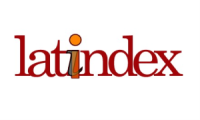Effect of OPRAS on employees’ performance in Tanzania local government authorities: The case of Mtwara municipal council
Abstract
This study examined the effect of Tanzania's Local Government Authorities' Open Performance Review assessment method on employees' performance in the case of Mtwara Municipal Council. Determining the impact of accuracy, objectivity, and feedback on employee performance were the three main goals of this study. The study adhered to the quantitative research methodology and was informed by the positivist research philosophy. It was carried out at the Mtwara District Council in the Mtwara Rural district using an explanatory research design. A sample of 102 people was selected from the research's participant population of 1094 Mtwara District Council employees and officials using a simple random selection procedure. multiple regression analysis was carried out to determine the relationship between the independent variable ( ORAS target setting on the dependent variable (employee performance). Data was gathered through questionnaires, and the results were displayed in tables. Results indicated that respondents agreed that OPRAS was statistically significantly and positively associated with employee performance. The study recommends that Local government managers should take seriously setting Opras targets making sure they are accurate, and objective and always there should be feedback to employees.
Downloads
References
Martin-Sardesai, A., Guthrie, J., Tooley, S., & Chaplin, S. (2019). History of research performance measurement systems in the Australian higher education sector. Accounting History, 24(1), 40-61.
DeNisi, A. S., & Murphy, K. R. (2017). Performance appraisal and performance management: 100 years of progress?. Journal of applied psychology, 102(3), 421.
Kuranchie-Mensah, E. B., & Amponsah-Tawiah, K. (2016). Employee motivation and work performance: A comparative study of mining companies in Ghana. Journal of Industrial Engineering and Management (JIEM), 9(2), 255-309.
Rahahleh, A. H., Alabaddi, Z. A., & Moflih, M. A. (2019). The Impact of Performance Appraisal on Employee Performance in Banks Operating in the South of Jordan. International Journal of Human Resource Studies, 9(4), 77-94.
Striteska, M., & Spickova, M. (2012). Review and comparison of performance measurement systems. Journal of Organizational Management Studies, 2012, 1.
Osinaike, A. (2021). Demystifying Performance Measurement in Small and Medium-sized Independent Hotel Accommodation: A Phenomenological Approach (Doctoral dissertation, University of Plymouth).
Frederico, G. F., Garza-Reyes, J. A., Kumar, A., & Kumar, V. (2021). Performance measurement for supply chains in the Industry 4.0 era: a balanced scorecard approach. International journal of productivity and performance management, 70(4), 789-807.
Amos, D., Musa, Z. N., & Au-Yong, C. P. (2019). A review of facilities management performance measurement. Property Management, 37(4), 490-511.
Osório, A. J. (2020). Reflexões sobre tecnologia e educação em tempo de pandemia.
Kareithi, M. W. (2018). Effect of performance appraisal system on performance of secondary schools’ teachers in Kirinyaga West Sub-County, Kenya (Doctoral dissertation, Kca University).
Chenhall, R. H., Hall, M., & Smith, D. (2017). The expressive role of performance measurement systems: A field study of a mental health development project. Accounting, Organizations and Society, 63, 60-75.
Mwasomola, A. A. (2020). Employee’s Performance Measurement Practices In Public Sector: A Case Study Of Tanzania Electricity Supply Company Head Quarter (Dar Es Salaam) (Doctoral dissertation, Mzumbe University).
Wang, P., & Ngomuo, S. I. (2015). Measuring performance in public sector organizations: evidence from local government authorities in Tanzania.
Nchimbi, A. (2019). Implementation of open performance review and appraisal system in Tanzania local government authorities: some observations and remarks. International journal of African and Asian studies, 53, 32-40.
Mohiuddin, M., Hosseini, E., Faradonbeh, S. B., & Sabokro, M. (2022). Achieving human resource management sustainability in universities. International Journal of Environmental Research and Public Health, 19(2), 928.
Ahmad, S. (2015). Green human resource management: Policies and practices. Cogent business & management, 2(1), 1030817.
Guerrero, S., Chênevert, D., Vandenberghe, C., Tremblay, M., & Ben Ayed, A. K. (2018). Employees’ psychological empowerment and performance: how customer feedback substitutes for leadership. Journal of Services Marketing, 32(7), 868-879.
Mpululu, M. M. (2014). Effectiveness of Open performance Review and Appraisal System in Public Primary Schools; A case of Mvomero District (Doctoral dissertation, The Open University of Tanzania).
Simon, A., Bartle, C., Stockport, G., Smith, B., Klobas, J. E., & Sohal, A. (2015). Business leaders’ views on the importance of strategic and dynamic capabilities for successful financial and non-financial business performance. International Journal of Productivity and Performance Management, 64(7), 908-931.
Murphy, K. R. (2020). Performance evaluation will not die, but it should. Human Resource Management Journal, 30(1), 13-31.
Wenzel, A. K., Krause, T. A., & Vogel, D. (2019). Making performance pay work: The impact of transparency, participation, and fairness on controlling perception and intrinsic motivation. Review of public personnel administration, 39(2), 232-255.
Pawlikowski, P., Rico, N., & Van Sell, S. (2018). Positivism: A concept analysis.
Queirós, A., Faria, D., & Almeida, F. (2017). Strengths and limitations of qualitative and quantitative research methods. European journal of education studies.
Schoch, K. (2020). Case study research. Research design and methods: An applied guide for the scholar-practitioner, 245-258.
Kothari, C. (2017). research methodology methods and techniques by CR Kothari. Published by New Age International (P) Ltd., Publishers, 91.
Paradis, E., O'Brien, B., Nimmon, L., Bandiera, G., & Martimianakis, M. A. (2016). Design: Selection of data collection methods. Journal of graduate medical education, 8(2), 263-264.
Wiedermann, W., & von Eye, A. (2015). Direction of effects in mediation analysis. Psychological Methods, 20(2), 221.
Schmidt, A. F., & Finan, C. (2018). Linear regression and the normality assumption. Journal of clinical epidemiology, 98, 146-151.
Pervaiz, S., Li, G., & He, Q. (2021). The mechanism of goal-setting participation’s impact on employees’ proactive behavior, moderated mediation role of power distance. Plos one, 16(12), e0260625.
Arnold, M. C., & Artz, M. (2015). Target difficulty, target flexibility, and firm performance: Evidence from business units’ targets. Accounting, organizations and society, 40, 61-77.
Black, P. W., Newman, A. H., Stikeleather, B. R., & Waddoups, N. J. (2019). Performance feedback type and employees' subsequent willingness to help other employees. Journal of Management Accounting Research, 31(3), 25-39.
Copyright (c) 2023 ITEGAM-JETIA

This work is licensed under a Creative Commons Attribution 4.0 International License.











